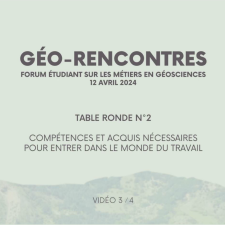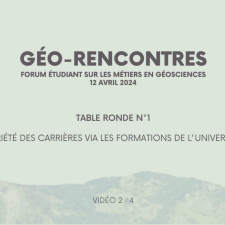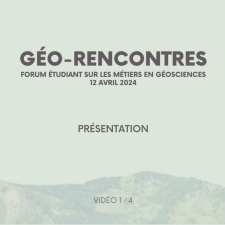Notice
Carbon Offsetting: An Ethical and Psychological Approach
- document 1 document 2 document 3
- niveau 1 niveau 2 niveau 3
Descriptif
The carbon offset market is becoming more and more popular. However, 57 until now few studies have attempted to approach the phenomenon from a social sciences’ perspective. By distinguishing three levels of analysis – the technical, psychological and ethical aspects – this work has a double objective: to better understand the mechanisms underlying the offsetting phenomenon and to evaluate its effectiveness as a greenhouse gas emissions mitigation tool. The comments made about the system concern the voluntary carbon offset market mostly, with a special focus put on its application in developing countries. Some observations however are valid for the Clean Development Mechanisms of the Kyoto Protocol as well. The three levels of analysis are considered to form a coherent whole, leading to a chain of problems related to how the marketplace is organised today. From a technical perspective, the calculation methods are based on scenarios anticipating how emissions are going to evolve, and as such are prone to strong uncertainties, contrasting dramatically with the over-simplified way that offsetting companies tend to present their services. By claiming to offer a perfect equivalence between compensated emissions and corresponding carbon reductions, such companies reinforce the competitive attractiveness of offsetting over true behavioural changes, banking on the low psychological and economic involvement it requires from individuals. At the ethical level finally, the idea that one can “neutralize” his/her greenhouse gas emissions, here and now, by helping implement reduction projects elsewhere and at another time, is in accordance neither with the responsibility that developed countries ought to undertake, nor with a certain aspiration for ecological justice. After a synthetic presentation of the various criticisms addressed to the offset system, this work proposes some adjustments and modifications to be applied, so that the system may become more just and more effective in the studied contexts. Notably, getting rid of the terms “offsetting” (to which one will prefer “contribution”) and “neutrality”; giving up the claim of perfect equivalence between emissions and reductions and limiting “offsetting” to domestic projects. Financial flows directed at projects in developing countries remain necessary, but they should not be dependant on, and proportioned to, the North’s emissions any more. It is the only way for western developed countries to assume their responsibilities fully.
Dans la même collection
-
Long Term Climate Variability: from Past to Future and from Data to Models
GuiotJoëlData show that climate has always changed in the past, sometimes with a larger amplitude than what we experimented for two decades. But the main signatures of the anthopogenic forcing are the speed of
-
Detection and Attribution of Climate Change to Different Causes
PlantonSergeAccording to the last IPCC report, the most part of the observed increase in globally averaged temperatures since the mid-20th century is very likely due to the observed increase in anthropogenic
-
Setting Cumulative Emissions Targets to Reduce the Risk of "Dangerous" Climate Change
ZickfeldKirstenThe ultimate objective of climate change mitigation is to reduce the amount of anthropogenic greenhouse gas (GHG) emissions in order to achieve “stabilization of greenhouse gas concentrations in the
-
Debate
CiaisPhilippeSeguinBernardChauvinDominiqueThe European Science Foundation (ESF) and the French Foundation of the Maison des Sciences de l’Homme (FMSH) (within the Entre-Sciences programme) have agreed to jointly develop a new conference
-
The Intergovernmental Panel on Climate Change and the Challenges of Climate policy, Equity and Ethi…
SomervilleRichardThe 2007 Intergovernmental Panel on Climate Change (IPCC) report provides clear guidance for the greenhouse gas emissions reductions needed to limit global warming to specific targets such as 2 °C
-
Climatic Hazard Mitigation Through Risk and Resilience Committees in Nepal
Raj AryalKomalNepal lies in an ecologically fragile and seismic region with a history of devastating Glacier Lake Outburst Flood (GLOF), landslides and earthquakes. Increases in temperature could increase the
-
Debate
BergerA.GuiotJoëlMannMichael E.DanisPierre-AlainAmatoVincenzoThe European Science Foundation (ESF) and the French Foundation of the Maison des Sciences de l’Homme (FMSH) (within the Entre-Sciences programme) have agreed to jointly develop a new conference
-
The State of UK Climate Modelling
FisherJoshuaThe UK recently invested £23 million (~US$40 million) in a program in Quantifying and Understanding the Earth SysTem (QUEST). The final product of this investment is the state-of-the-art QUEST Earth
-
Climate, Geography and Macroeconomics: Revised Data, Refined Analysis and New Findings
FüsselHans-MartinAssessments of social and economic impacts of climate change are primarily based on the results of biophysical climate impact models, which are aggregated, extrapolated and/or valued in monetary terms
-
The Effect of Thermal Pollution on Benthic Foraminiferal Assemblages, in the Mediterranean Shore Fa…
ArieliRuthieOver the past several decades public and scientific awareness to global warming has increased significantly. As a result, many studies have examined the affects of global warming. However, the
-
International Negociations on Climate Change: How to Take Advantage of Risk Aversion to Improve the…
ThoronSylvieClimate change is one of the best examples of global environmental problems. Countries are conscious that they have to find a solution to this global problem at the international level. Negotiations
-
IPCC Working Group II
ChanzyAndréThe European Science Foundation (ESF) and the French Foundation of the Maison des Sciences de l’Homme (FMSH) (within the Entre-Sciences programme) have agreed to jointly develop a new conference
Avec les mêmes intervenants et intervenantes
-
Debate
DjédjéOkoubi Franck DidierMillnerAntonyRaj AryalKomalFragnièreAugustinThe European Science Foundation (ESF) and the French Foundation of the Maison des Sciences de l’Homme (FMSH) (within the Entre-Sciences programme) have agreed to jointly develop a new conference
Sur le même thème
-
Géo-Rencontres 2024 / Les expériences valorisées dans le monde professionnel
LilloEmmaAraujoJulieHuartFlorianDubreuRomainBuquetDamienChazalLauraBorieMarianeForum sur les métiers en géosciences organisé par les étudiants du CMI Ingénierie Géologique et Civile, Université de Bordeaux, 12 avril 2024
-
Géo-Rencontres 2024 / Compétences et acquis nécessaires pour entrer dans le monde du travail
BrinonJulietteAmoleFili-FenuaPretouFrédéricCampetHugoLiébauxAlbinDe AlemeidaMarie-LouPoirierAymericDufrenoyAudreyForum sur les métiers en géosciences organisé par les étudiants du CMI Ingénierie Géologique et Civile, Université de Bordeaux, 12 avril 2024
-
Géo-Rencontres 2024 / Variété des carrières via les formations de l'université
InguimbertDianeLacazeRomaneLemaitreLaurieChazalLauraMontjeanPascalPoudevigneJacquesPortefaixFrédéricForum sur les métiers en géosciences organisé par les étudiants du CMI Ingénierie Géologique et Civile, Université de Bordeaux, 12 avril 2024
-
Géo-Rencontres 2024 / Présentation
LatasteJean-FrançoisLavieThéoForum sur les métiers en géosciences organisé par les étudiants du CMI Ingénierie Géologique et Civile, Université de Bordeaux, 12 avril 2024
-
Tokyo, plus grande « ville » au monde : aménager et gouverner la démesure
Languillon-AusselRaphaëlAvec ses quelques trente-cinq millions d’habitants, Tokyo est la « ville » la plus peuplée au monde, et l’une des métropoles les plus riches. Cette présentation vise à décrire, analyser et expliquer,
-
Demande en biens et services et fluctuations conjoncturelles
Maveyraud-TricoireSamuelDemande en biens et services et fluctuations conjoncturelles
-
-
-
Les propensions à consommer et à épargner
Maveyraud-TricoireSamuelLes propensions à consommer et à épargner
-
Le marché des biens et services à court terme
Maveyraud-TricoireSamuelLe marché des biens et services à court terme
-
Les fluctuations conjoncturelles de l’activité
Maveyraud-TricoireSamuelLes fluctuations conjoncturelles de l’activité
-
Les fluctuations du revenu courant et le lissage de la consommation
Maveyraud-TricoireSamuelLes fluctuations du revenu courant et le lissage de la consommation














